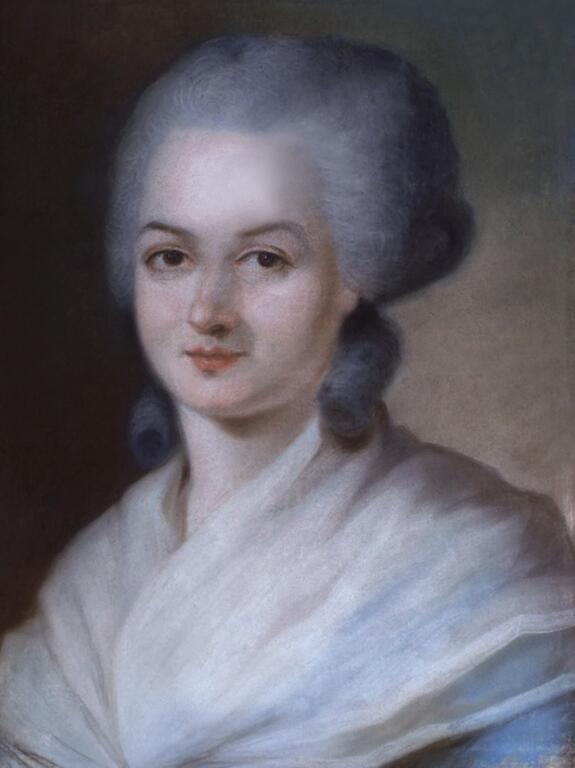Quote:
“Woman is born free and remains equal to man in rights. Social distinctions may be based only on common utility.”
Source:
Quote translated after: Olympe de Gouges (1791): Declaration of Women- and Citizen rights, First Article
Picture: Alexander Kucharski – Bonarov, 11. November 2018, CC BY-SA 4.0, Wikimedia. Creative Commons.
Author Bio:
Olympe de Gouges (1748-1793) was a pioneer for the emancipation of women and their civil rights. De Gouges was also an early critic of colonialism. She was executed in 1793, but not for her commitment to women's rights.
Context:
 The "Declaration of the Rights of Women and of the Female Citizen" is a counter-declaration to the Declaration of Human Rights of the French Revolution, which only applied to men. De Gouge's "Declaration of the Rights of Women and the Female Citizens" is a fundamental text in the history of women's emancipation. However, women's suffrage was not introduced in France until a long time later, in 1944. Switzerland was one of the last European countries to grant women full civil rights in 1971. The canton of Appenzell Innerrhoden did not introduce voting rights for women at communal level until 1990. De Gouge's demands remain relevant. According to UN Women, the risk factor of living in poverty is still around 1.2 times higher for women than for men in the same age group.
The "Declaration of the Rights of Women and of the Female Citizen" is a counter-declaration to the Declaration of Human Rights of the French Revolution, which only applied to men. De Gouge's "Declaration of the Rights of Women and the Female Citizens" is a fundamental text in the history of women's emancipation. However, women's suffrage was not introduced in France until a long time later, in 1944. Switzerland was one of the last European countries to grant women full civil rights in 1971. The canton of Appenzell Innerrhoden did not introduce voting rights for women at communal level until 1990. De Gouge's demands remain relevant. According to UN Women, the risk factor of living in poverty is still around 1.2 times higher for women than for men in the same age group.Further Reading:
*Resources on Olympe de Gouges
*Sophie Mousset (2007): Women's Rights and the French Revolution. A Biography of Olympe De Gouges. New York: Routledge.
Year:
1791